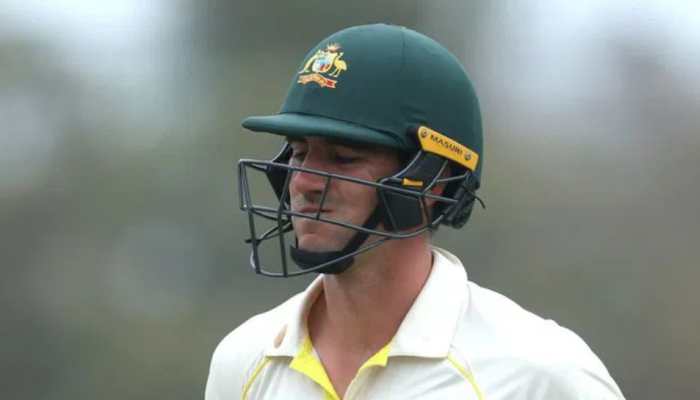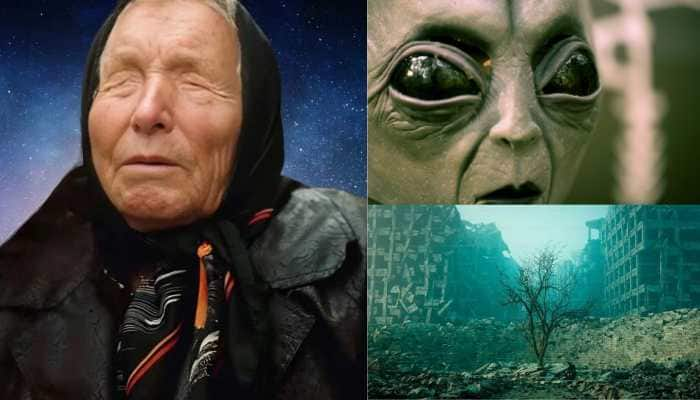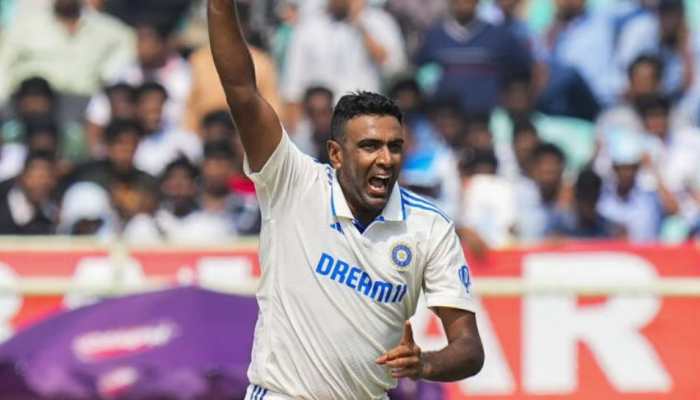Rise of United Front under Xi Jinping: A super agency supervising, China’s Intelligence and External Affairs
The report funded by The Netherlands' Ministry of Foreign Affairs highlights the activities carried out by the United Front of the People’s Republic of China (PRC) and the nexus of organisations created by it across the world.
Trending Photos
)
BEIJING: The Chinese Communist Party (CCP) has been using a super system of a network of organisations and state agencies, collectively known as the united front system - administered by the United Front Work Department (UFWD) of the Chinese government. The primary objective of the front is to work towards and fulfil Party's goals.
Over the years, the united front system has transcended the boundaries of Chinese territory and is currently delivering the duties of intelligence cum foreign affairs’ organisation as well. The United Front system is primarily involved in ideological subversion and covert operations within and outside PRC. The UFWD strengthens its influence by raising-up leaders from ethnic minority groups, religious movements, educational institutions, diaspora, society and political groups. All such organisations and stakeholders collectively constitute the united front system — a Chinese intelligence and propaganda network operating across the world.
The Australian Strategic Policy Institute (ASPI) has come up with a report titled 'The Party Speaks for You', authored by its Analyst Alex Joske. The report funded by The Netherlands' Ministry of Foreign Affairs highlights the activities carried out by the United Front of the People’s Republic of China (PRC) and the nexus of organisations created by it across the world.
Addressing the Central United Front Work Meeting in 2015, Xi Jinping called it a 'magic weapon for strengthening Party's ruling position'. The same connotation was used by Mao Zedong in 1939 to describe the united front system. The united front system has always been a core body of the CCP and was constituted only a year after the foundation of the CCP in 1921 as a chapter of the Soviet Comintern. In 1922, the Party started carrying out a united front’s work by proposing a united front of supporters of democracy. The Party credits its victory in the Sino-Japanese War (1937-1945) to the united front, as it created favourable conditions with the Kuomintang, which diverted the focus of the Kuomintang from CCP to Japan.
Xi Jinping has been an age-old soldier of the front
With Xi Jinping rising to power, the powers of UFWD has increased manifold and the united front has exponentially grown. The logic behind this fact is not rocket science. The united front work constitutes an important part of Xinping’s life. He worked for the CCP in Fujian Province for 15 years which is a hotbed of United front’s intelligence work targeting Taiwan. As Municipal Party Secretary of the CCP, he authored a paper on united front's work on Chinese diaspora in 1995. It is believed that modification of the UFWD in a new avatar is Jinping’s effort to manifest the ideas authored in the said paper. He came up with the idea of the ‘Great United Front’. For the realisation of this idea, he introduced three major reforms in the UFWD. Firstly, he codified the work of the front and introduced the first set of regulations. Secondly, he set up a ‘Leading Small Group’ within the UFWD to supervise and expand its work. Thirdly, he added six new bureaus to the Central UFWD, taking the total number of bureaus to twelve! Prior to Jinping, his father Xi Zhongxun - a Politburo member, supervised united front’s work throughout his career. Besides, two of Jinping’s siblings were also involved in the political warfare of the Chinese military.
Structure of the United Front Work Department (UFWD)
The Central UFWD currently operates these 12 bureaus: Minor Parties Work Bureau; Ethnic Affairs Work Bureau; Hong Kong, Macau, and Taiwan United Front Work; Non-public Economy Work Bureau; Non-affiliated and Minor Party Intellectuals Work; Tibet Work Bureau; New Social Strata Individuals Work Bureau; Xinjiang Work Bureau; Overseas Chinese Affairs General Bureau (regional affairs); Overseas Chinese Affairs General Bureau; Religious Work Bureau (religious schools); and Religious Work Bureau (specific religions). The last six bureaus were added by Jinping ‘s regime after 2015.
UFWD has a federal structure like the Indian three-tier system and operational and administrative powers are decentralised as besides the Central UFWD, the provincial, district or city Party committees oversee their own UFWDs. Besides the party/government level, the UFWD has also constituted its units in society organisations, universities, media, and even corporate entities operating within China. Reputed Chinese universities like Jinan University, Huaqiao University, Central Institute of Socialism ete are subordinate to the UFWD. It also directly supervises more than 80 civil society groups and local units of the department oversee at least 3,000 organisations across the PRC. These organisations are doing well and a couple of them have also gained Special Consultative Status as NGOs by the United Nations.
The UFWD is led by five stakeholders: a Politburo Standing Committee member; a Central Secretariat or Politburo member; UFWD Head; State Council Leader; and the United Work Front Leading Small Group (constituted by Xi Jinping). The leadership supervises and oversees the working of PRC government's agencies including the Ministry of Foreign Affairs, Ministry of Education, Ministry of Science and Tech, Hong Kong and Macau Affairs Office, Taiwan Affairs Office, Eight minor political parties, National People’s Congress, etc. These state agencies in turn, target and work on to influence and subverge groups and foreign governments targeted by the united front including religious groups, ethnic minorities, elites in Hong Kong and Macau, Taiwanese citizens, overseas students, political figures, corporate entities, media, NGOs, think tanks, etc.
The department has 10 leaders and at least six of them hold higher. 12 bureaus of the UFWD currently employ more than 600 officials at the rank of bureau chiefs or above. The post of a bureau chief is roughly equivalent to the post of a Joint Secretary in any ministry in the Government of India.
An Umbrella Organisation of Chinese Intelligence
At least 26 ministries/departments/units joined the meeting of UFWD's most powerful unit Central United Front Work Leading Small Group in 2017. The agencies that joined the meeting included the Propaganda Department, the Organisation Department, Ministry of Education, Asset Supervision and Administration Commission, and Chinese intelligence agency Ministry of State Security. The attendance of intelligence as well as subversive agencies in the meeting once again reiterates the fact that UFWD is an umbrella intelligence organization and the top coordination body to carry out subversive operations.
Top United Front Work Department (UFWD) Leaders
Wang Yang - the fourth most powerful member in the seven-member Politburo Standing Committee of the CCP chairs the top forum of the UFWD — the Chinese People’s Political Consultative Conference (CPPCC). It is generally believed that the CPPCC is a forum of the CCP. However, it only brings along top CCP leaders to this forum to facilitate discussions between CCP and UFWD. Wang also heads the Central United Front Work Leading Small Group — the top echelon of the UFWD.
Sun Chunlan is another important leader of the UFWD. He is a Politburo member as well as the vice premier of the country and currently holds culture,health, sports, religion, and education departments. Sun is the person responsible for supervising the UFWD on behalf of the CCP government. In fact, he is the main coordinating figure between the CCP and UFWD. He earlier chaired the UFWD and currently looks after the network of Confucius Institutes. He is the current chair of the council of Confucius Institute Headquarters. The fact that he looks after the culture, religion, and education portfolios, he becomes a more volatile figure and a greater potential threat to the countries where Confucius Institutes are operating.
You Quan currently heads the UFWD as its director. He is also one of the members of the Central Secretariat — a unit that manages administration of the Politburo.
Xiao Jie has also been seen at numerous top-level meetings of the UFWD highlighting that UFWD is an integral part of the Executive wing of the PRC government. Xiao currently serves as the Secretary General of the State Council, holding a designation equivalent to Cabinet Secretary in many countries.
Role of UFWD on Propaganda and Subversion
The UFWD plays an important and decisive role in propagating Chinese propaganda. CCP’s extensive media network – China News Service is one of the important tools of united front's propaganda. Numerous overseas Chinese language media organisations are owned/controlled by the UFWD through the China News Service. The front also goes hyperlocal to disseminate its messages. Several WeChat accounts run by Chinese media outlets operating overseas are registered to a subsidiary of China News Service. The WeChat accounts operate in the EU, Russia, Japan, Brazi and several other countries. It is similar to social media groups constituted by political parties on casteist/communal lines to fetch votes in their favour during peak of election campaigns. The China News Service organises a biennial Forum on Global Chinese Language Media and draws hundreds of media personnel from across the world. It carries out classes on topics like ‘how to tell the Belt and Road Initiative's story well’ on the sidelines of the event.
Intelligence Warfare
Chinese Premier Zhou Enlai advocated 'nestling intelligence within the united front’ and ‘using united front to push forth intelligence'. The united front creates assets and networks in the foreign countries that help the Chinese intelligence agencies to operate in the target countries. In fact, the united front was behind the foundation of China’s intelligence structure. It was one of the four agencies that came together in 1983 to constitute China's internal intelligence organisation - the Ministry of State Security (MSS). Many incidents have come in light in which the united front's members acted as handlers of spies. For example, Mao Guohua — a united front operative and MSS's bureau chief was the handler of a triple agent Katrina Leung, who gained the trust of America’s FBI in the 1980s and 11990s. The China International Culture Exchange is a major body that covertly carries out overseas intelligence operations on united front's behalf. Though CCP agencies like the International Liaison Department, the MSS, the PLA etc have their own interference operations, the united front system also provides them base and advantage to carry out respective operations.
Political Influence: The front attempts to promote the pro-China proxy leaders in the democratic and parliamentary systems of foreign nations. Several parliamentary election candidates/parliamentarians have been associated with the front in countries like Australia and the UK. Moreover, to exert political influence in countries, the united front hops on the ethnic Chinese community and seeks to dominate the political landscape through community leaders, community groups, corporate entities, and media. Within PRC, the united front leads and supervises the working of eight minor/satellite parties. It also plays the role of increasing support base and gathering consent in Party's favour by bringing together groups, communities, and leaders under Party's umbrella. The united front also supervises the CPPCC.
Education: The united front targets the nationalist Chinese students studying overseas and tries to cultivate patriotism amongst the Chinese origin students. After the conclusion of the degree, the united front agency — All China Federation of Returned Overseas Chinese keeps the students engaged in front's work back home. The united front describes education as ‘an important battlefield’ for its work. The Ministry of Education and Party committees work as entities of the united front on campuses and seek to achieve the set ‘targets’. Within China, the united front has been tasked with introducing education reforms in the country to ensure that the younger generations start thinking on the lines of the Party. It has also helped to reform the pedagogy and teaching methods by introducing new technologies and seeking ideas from Western experts.
External Affairs: In 2015, Xi Jinping regime entitled the UFWD with additional powers, adding to the overbroad powers that it already had. He gave it authority over religious, ethnic, and Chinese diaspora affairs. It became a super body over the Overseas Chinese Affairs Office and it became an organisation with greater powers than those of the Foreign Ministry. It is also the supervising authority over Taiwan, Hong Kong and Macau. Interestingly, a majority of diplomats deputed to Chinese embassies are now outsourced from the united front. For example, China’s ambassador to Colombo is not a career diplomat, but a united front official. The united front officials disguised as Chinese diplomats are tasked with holding meetings with local united front leaders and influencing public opinion.
The front also supports several think tanks and human rights organisations in the host countries. The members of the united front working abroad are also indulged in illegal technology transfers, surveillance, and espionage. Some of them have also been indulged in making databases on overseas scientists and scholars. Such members have frequently been coming under scrutiny of host nations for their involvement in the said activities. In multiple cases, members of the front have been convicted in the USA, Australia, and EU countries for illegal tech transfer and espionage.
Stay informed on all the latest news, real-time breaking news updates, and follow all the important headlines in india news and world News on Zee News.
Live Tv







)
)
)
)
)
)
)
)
)
)
